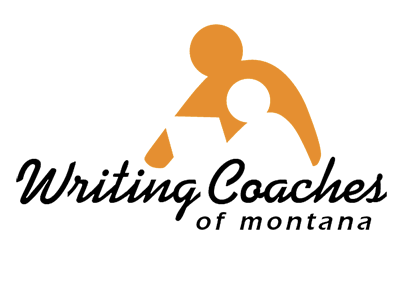Kat's Writerly Reflections
In June, I met a snapping turtle. I was enjoying an evening of kayaking on Long Pond Lake in New York after a rigorous day of attending writing workshops, publishing seminars, and networking events at the Orion Magazine Environmental Writers’ Workshop. When I’d applied for this workshop, I wanted to hone my writing skills through workshops with authors whom I deeply respect and admire (shoutout to Alexandra Kleeman!) and make connections with professionals in the book industry in order to lay the groundwork for publishing future projects. Both of those things happened, but the snapping turtle was the crown jewel of the experience.
The water was impossibly clear, and I was gliding along the shoreline in my kayak watching the chain pickerel dart through the spiny coontail, low water milfoil, and fanwort that grew along the lakebed to my left. There’s always something that feels innately alien about aquatic life, and I felt like I was getting a rare glimpse into it. The fish moved with a sense of grace and agility that can’t be replicated on dry land. They hung in suspension amid the mossy greenery that seemed to sway in slow motion before disappearing further into the depths of the lake. After observing the fish for a while, I turned to the right and realized I was within arm’s reach of an absolute dinosaur. The snapping turtle watched me pass. He was well over a foot long (though my memory might be exaggerating that a bit) with a long spiny tail and a thick shell covered in fuzzy dark green algae. The severe silhouette of his snout and his dark eyes projected an air of timelessness, and his feet bore massive, thick claws. My heart stopped. I had never been up close and personal with such a fascinating reptile in the wild before. When I recovered from the jaw-dropping, stillness-inducing awe, my kayak had already moved past the turtle’s cove, and he’d sunk out of sight.
My imagination lit up. What was this creature’s daily life like? What does it feel like to experience the world as a snapping turtle? What shape did his thoughts take? If my brain were to suddenly start processing stimuli the way his does, would I recognize the world around me at all? Snapping turtles can live up to 40 years in the wild, and they are apex predators which makes them valuable contributors to the health of their territory. Seeing this animal was a wonder and an absolute privilege. After he slipped back into the mucky underbelly of the wetland beneath my kayak, I had to refrain from returning to the place I’d seen him every couple of minutes just on the off-chance that he’d surfaced again. I was a visitor in his home, and I didn’t want to become a bother.
I spent the rest of that evening contemplating the vivid brilliance of the non-human world. The snapping turtle reminded me why writing, and particularly environmental writing, is so important. Without the ability to communicate clearly, how could I ever express the awe, wonder, and curiosity of that wildlife encounter with others who might not ever get the chance to interact with a snapping turtle in their natural habitat? This is part of why what we do at WCM is so important. Even if a student doesn’t go into a career that requires advanced writing skills, developing strong communication and literacy allows people to revel in the experiences of others. This not only makes us more capable of processing new information, but it gives us greater access to empathy. The work we do isn’t important because it helps students get a better grade on particular assignments; it’s important because it helps them grow as citizens of the world.
–Kat Jackson, Missoula & Ravalli Coordinator
Jeanne's Summer of Service
As a teacher on break for summer I was always thinking about my return to the classroom and how I would create a more engaging year. Even though I’ve retired from the role as a classroom teacher, this summer was much like others in years past. I was involved with the Office of Public Instruction [OPI] as a member of the review team for the English Language Arts [ELA] state standards revision which caused me to think about how I continue to support instruction as a member of the Writing Coaches of Montana.
I attended remote learning workshops in preparation for my task. The workshops included topics on Indian Education for All [IEFA], artificial intelligence [AI], bias, and creating connections with students. Ah, creating connections with students, the essence of what Writing Coaches of Montana is about.
The review committee made a few suggestions which included shifting the domains down to four (Reading, Writing, Speaking and Listening, Inquiry & Investigation) and combining the reading informational text and reading literature standards into a single set that captures what good readers do when they read no matter what text type.
I became aware of Joan Sedita’s book, “The Writing Rope”. Simply put it’s a graphic that shows the components for skilled writing. Critical thinking, syntax, text structure, writing craft and transcription are the strands that weave the written product. We as writing coaches focus on asking critical thinking questions about content and organization to motivate students to create their best writing possible. Using the metaphor of a strong rope with many strands can help a student realize the importance of developing background knowledge about a topic in order to complete the writing process.
Following the August 8 reconciliation meeting, the revised standards will be presented to the Office of Public Instruction superintendent at the end of August. From September through December the negotiated rule committee will review the new proposed standards. Classroom teachers will not use the revised ELA standards until fall 2026, after the Board of Public Education adoption phase and professional learning period.
Good things take time and this process reminds me of that. It’s like planting seeds, waiting for them to germinate and eventually flourish into healthy plants. That’s a good analogy for what we do as coaches. We make gentle suggestions with the intention that students will consider them and write a more thoughtful paper. Our work as writing coaches is extremely important because we promote literacy and literacy is the core to understanding. Thank you for being a Writing Coach of Montana and let’s have another great year as we actively listen and question with intention. #coolbackinschool
–Jeanne Wdowin, Flathead Coordinator
Cassie's Educator Empathy
Our family welcomed a second child in July: Mason Daniel Kavanagh. In the joyful and exhausting chaos of balancing the needs of multiple children, I've been thinking about the diversity of intelligences our kids share with the world. How will Mason operate and grow differently than our toddler? Will he sleep well? (Jury's still out...) Will he be a picky eater, something that is foreign to his adventurous sister? How will his neurology, identity, and personality combine to allow him to operate in the world? How will my husband and I be humbled as parents as we learn to support him through challenges that we've never encountered with his older sibling? How will I learn how to support both kids without relying on comparisons or socially constructed hierarchies of development? Only the journey to come will solve these mysteries. And they'll be beautiful to experience with our whole family because we'll be there as a community to support each other.
Similarly at Writing Coaches of Montana, I observe the ways that teachers balance the needs of approximately 30 students in each of their classes. 30 students means 30 diverse journeys, yet a teacher is a finite, single human no matter their level of expertise and commitment. Just like my kiddos at home, in the classroom students need one-on-one mentorship in order to blossom into the fullest versions of themselves. That's why I'm honored to be a part of WCM, to help infuse public school classrooms with hundreds of volunteer coaches who offer individualized literacy support. Educating the next generation is a community issue which requires a community response.
Whether it's our own kiddos or thousands of local students, every young person is a unique learner who can benefit from individualized support. Here's to the honorable journey of being present adults for our youth.
–Cassie Sheets, Executive Director

